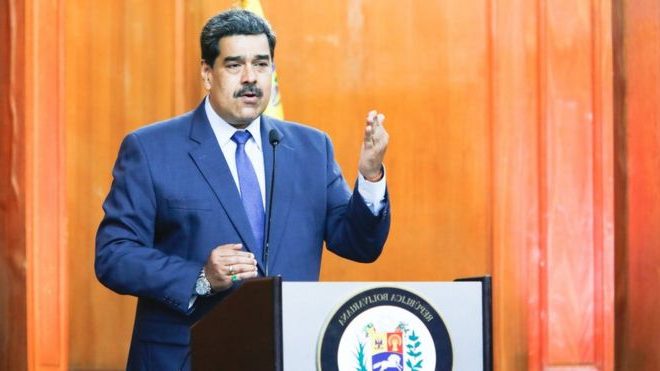SAFETY
The United States government has significantly escalated its pressure on Venezuelan President Nicolás Maduro by increasing the reward for information leading to his arrest to a staggering $25 million. This move, coinciding with Maduro’s controversial inauguration for a third six-year term, effectively confines him within Venezuela’s borders, severely limiting his ability to travel internationally. The inauguration ceremony itself was met with widespread condemnation from the international community and the Venezuelan opposition, who view Maduro’s continued rule as illegitimate. The increased reward underscores the US’s unwavering stance against Maduro’s regime and its commitment to holding him accountable for alleged crimes, including drug trafficking and corruption. The substantial reward also targets key figures within Maduro’s inner circle, namely Interior Minister Diosdado Cabello and Defence Minister Vladimir Padrino, further isolating the regime and potentially fostering dissent within its ranks.
The international response to Maduro’s inauguration extended beyond the US reward. Key global actors, including the United Kingdom, the European Union, and Canada, imposed new sanctions on top Venezuelan officials. These sanctions, citing human rights violations and the systematic undermining of democratic institutions, further restrict the regime’s access to international financial systems and travel, increasing pressure on Maduro and his allies. The coordinated international action sends a clear message of disapproval and reinforces the global consensus that Maduro’s presidency lacks legitimacy. The sanctions aim to isolate the regime economically and politically, encouraging a transition towards a democratic government that respects human rights and the rule of law.
Maduro, however, remains defiant, vehemently rejecting the accusations and attributing Venezuela’s crippling economic crisis to US-led sanctions. He portrays himself as a victim of international interference and maintains a firm grip on power through his control over the military and state institutions. His narrative, however, fails to resonate with a significant portion of the international community, which views the sanctions as a necessary response to his authoritarian rule and the humanitarian crisis unfolding in Venezuela. The economic woes, characterized by hyperinflation, shortages of essential goods, and mass emigration, continue to plague the country, further eroding popular support for Maduro and fueling discontent within the population.
Maduro’s re-election in 2018 remains widely contested, with many countries refusing to recognize its legitimacy. The Venezuelan opposition, led by Juan Guaidó, whom numerous nations recognize as the interim president, continues to challenge Maduro’s authority and advocate for free and fair elections. This political stalemate has further polarized the country and hampered efforts to address the ongoing humanitarian crisis. The international community’s recognition of Guaidó as the legitimate interim president serves as a symbolic challenge to Maduro’s authority and reinforces the demand for a democratic transition.
While Maduro retains the support of a few key allies, including Iran, China, and Russia, his international isolation is increasingly evident. These alliances, often based on strategic and economic interests, provide Maduro with a lifeline in the face of international pressure. However, the support from these countries does not translate into widespread international legitimacy, further highlighting Maduro’s precarious position on the world stage. The limited attendance at his inauguration, with only the Cuban and Nicaraguan presidents present, underscores the extent of his isolation and the lack of international recognition for his third term.
The escalating international pressure on the Maduro regime, through increased rewards, sanctions, and diplomatic isolation, reflects the growing concern over the political and humanitarian crisis in Venezuela. While the immediate impact of these measures remains uncertain, they aim to weaken Maduro’s grip on power and create an environment conducive to a democratic transition. The future of Venezuela remains uncertain, but the concerted international effort signals a sustained commitment to promoting democracy, human rights, and the rule of law in the country. The combination of financial pressure, diplomatic isolation, and internal dissent may ultimately force a change in the political landscape and pave the way for a more democratic and prosperous future for the Venezuelan people.
Share this content:












Post Comment